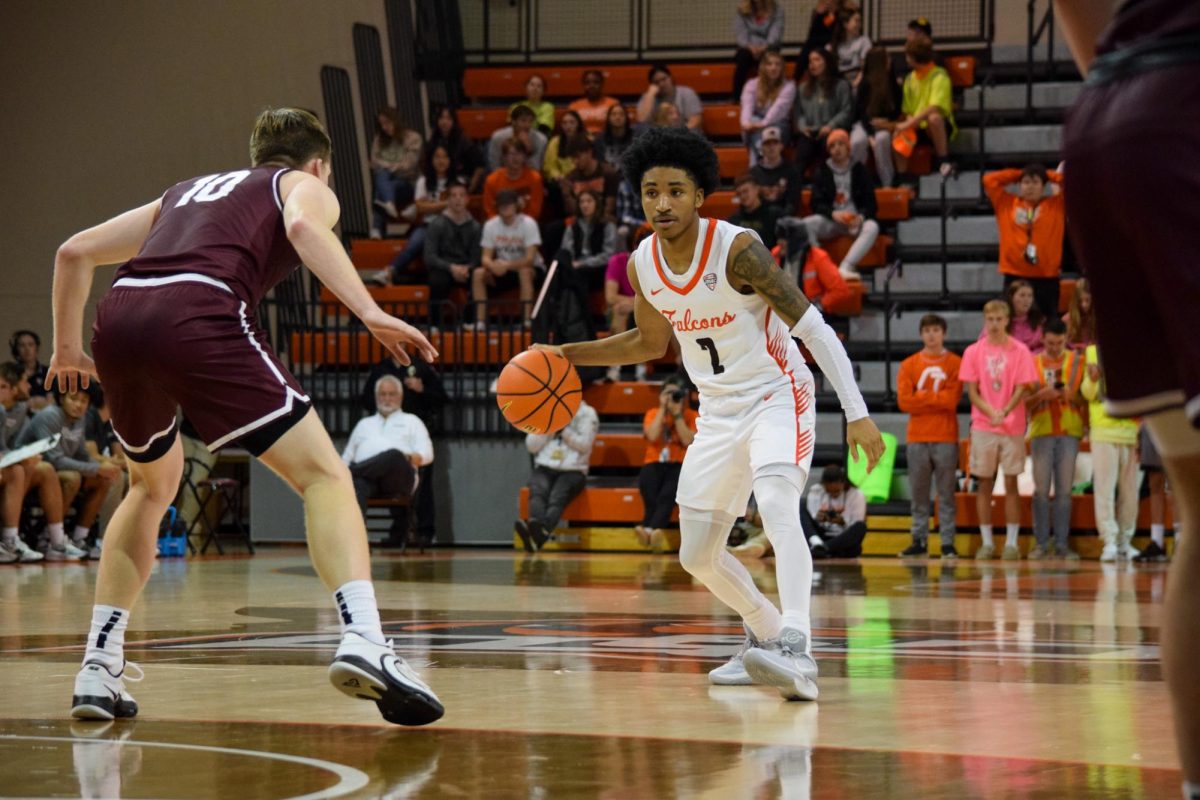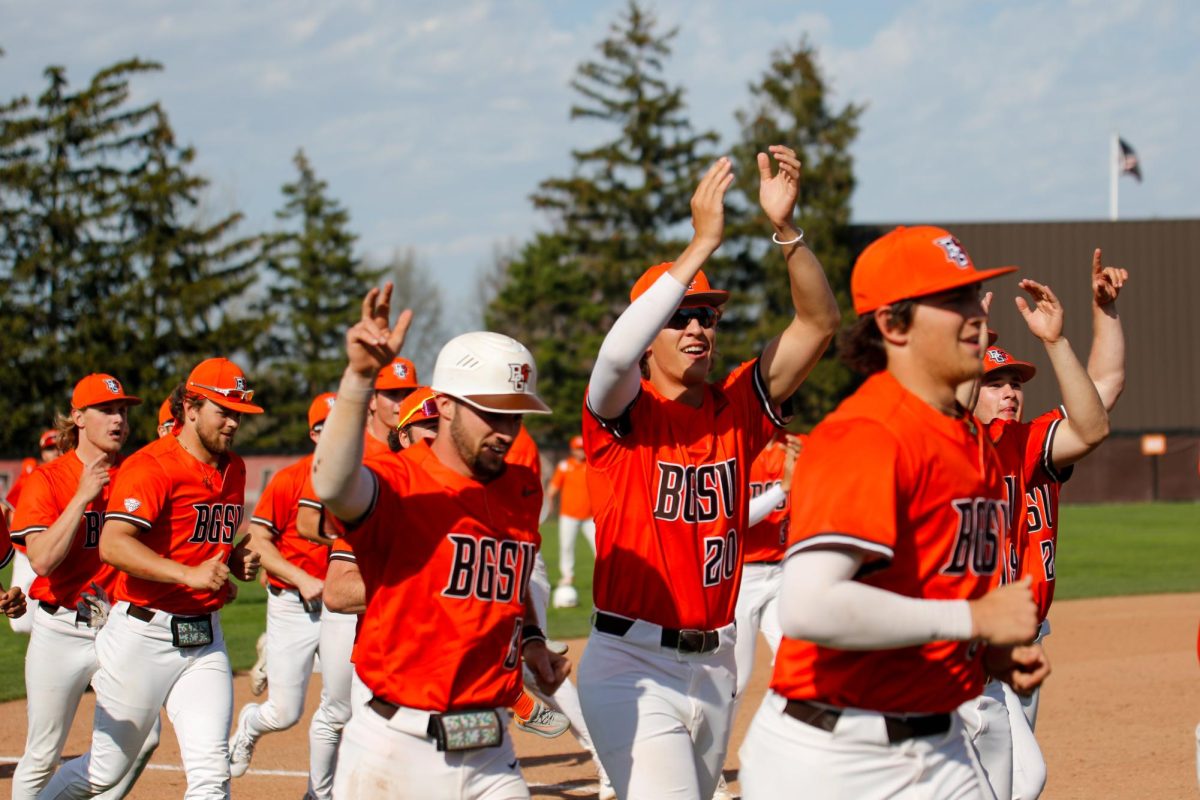Descendants and Native American members of the Mingo Nation performed a traditional Pow-Wow in Olscamp Hall last night, wrapping up two days of celebration and recognition for Native American Awareness Week on campus.
Professors from around the country spoke both Monday and yesterday to faculty, students and community members about the history and cultural practices of Native Americans in the United States. Native speakers included Dr. Tony Clark from the University of Illinois Champagne-Urbana, Dr. Richard Morris from Arizona State University, Dr. Steven Pratt from the University of Central Oklahoma; and Eddie Madril, a poet, dancer, playwright and activist from Arizona.
Sponsored by BGSU’s Native American Unity Council, the goal of these events was to help the people of northwest Ohio better understand the struggles that Native Americans have been through, according to University student and NAUC President Adrian Childress.
“It’s really empowering for the Native Americans on campus to see other people who have these different heritages,” Childress said. “We learn a lot from listening to them and learning their stories. Everyone has their own culture, their own traditions. If we can broaden peoples experiences, show them that this is who we are, then that is all we are trying to do.”
The topic focused on by the speakers was identity, and the collective damage that has been inflicted upon Native American identity from a variety of different angles.
One of the most detrimental blows to Native American identity was the relocation of native peoples by the U.S. government from their tribal homes to metropolitan cities, beginning in 1935. According to Dr. Richard Morris, people were placed in Detroit, Chicago, San Francisco and a host of other cities throughout the United States.
“Just before World War II they gathered up people who weren’t nailed down, dropped them in a city and said ‘Here’s your new life’,” Morris said. “There was no instruction, no money, no housing.”
Morris added that children were placed in boarding schools, where they were no longer allowed to speak their native language.
Dr. Steven Pratt focused on the importance of language in maintaining an identity, and how the elimination of regional dialects played a major role in the deterioration of tribal cultures.
“Our values, our beliefs, our world view come through our language,” Pratt said. “When you learn another language, you are learning in essence another reality. So if you take a language away, what was ceases to exist. To de-Indianize someone was to take their language away.”
Bowling Green resident Fawn Crawfoot, a native of Mohawk ancestry, can understand the pain that tribes went through during the U.S. government’s relocation period.
“My grandparents came here originally from Canada, and during the relocation we hid in the woods,” Crawfoot said. “They tried to burn my grandmother’s house down. We didn’t really get to be ourselves until about 15 years ago.”
When a question was raised about the influence of poorly funded public education on the success of Native Americans living on reservations, Dr. Tony Clark was quick to correct the misconception that all knowledge can be found in a textbook.
“I like to call the knowledge that native people have ‘Indigenous Intellectual Disciplines’,” Clark said, in reference to disciplines or specializations that students focus on at the college level. “It is thousands of years old, knowledge disseminated through the generations, institutions set up for that dissemination. I don’t want to draw a line between what we think of as education, and the education that’s been going on for thousands of years.”
Dr. Morris followed Dr. Clark’s example by clarifying the different viewpoints held by Native Americans and Caucasians about what a preferred lifestyle really is.
“A friend of mine took his class to a reservation, and a student asked ‘How can these people live in third-world conditions?’,” Morris said. “An elder turned and said, ‘Because it is better than the other option.’ So what you might think of as better; more technology, more stuff; may not be what I think of as better.”
A sense of hope was carried away from the engagements by speaker Eddie Madril. The time that he has spent informing the people of Bowling Green about Native American issues may result in an increased level of understanding and support in the future.
It’s not a matter of telling you what my wants are,” he said. “It’s a matter of sharing with you who I am and what’s happening. That awareness is going to help someway, because you can become some kind of advocate for others. At some point tomorrow, next year or next decade when you hear about these people down in Arizona having a hard time, you can say, ‘I know something about native people, and maybe I can inform [others]’.”

















